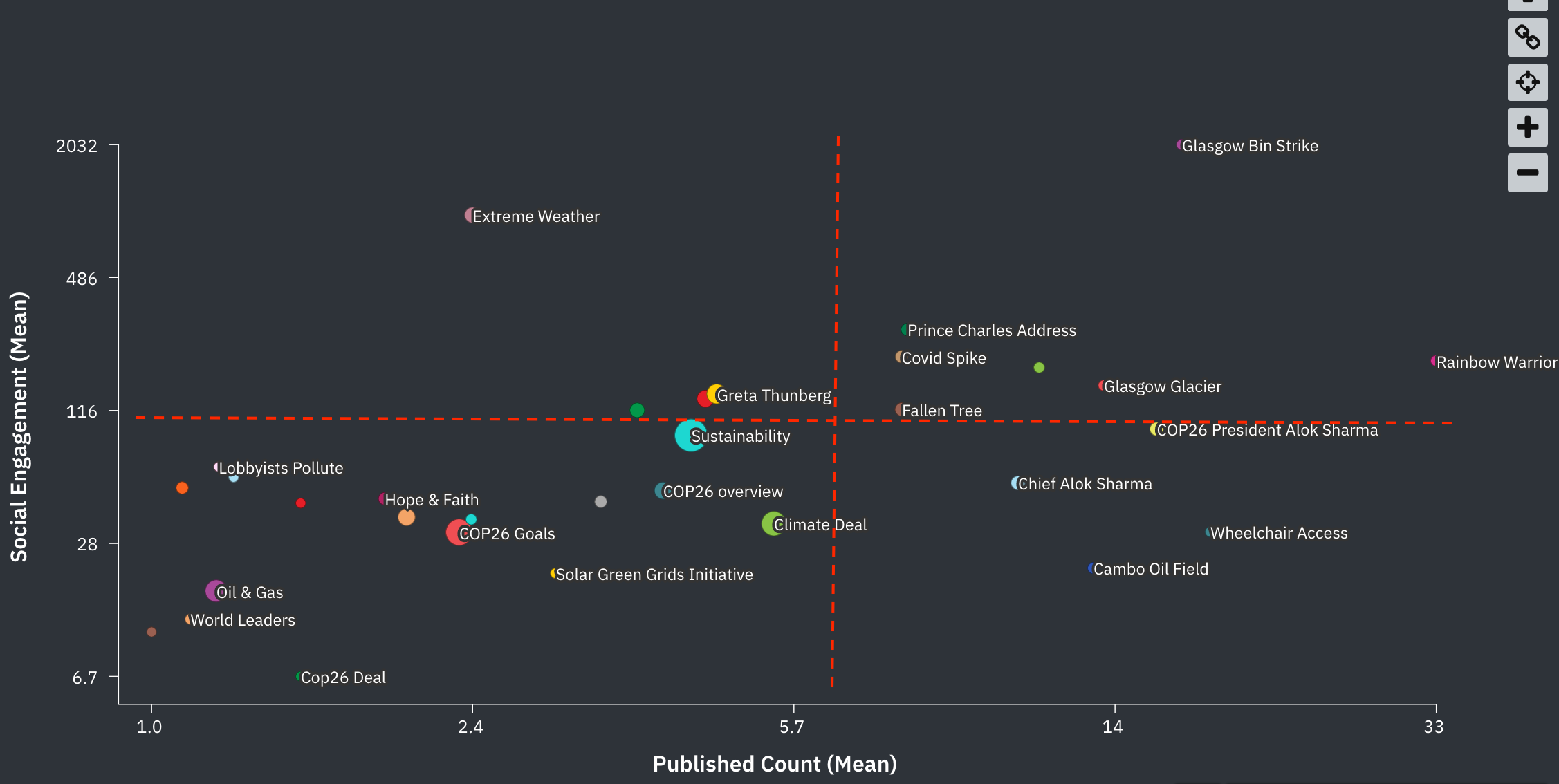Some 50 nations committed at the recently closed UN climate talks vowed to clean up the healthcare sector, but the most viral stories from the conference may surprise you.
A search of the LexisNexis media database found more than 52,600 stories about the two-week conference published by the world's media outlets.
Predictably, quite a few focused on extreme weather, speeches from President Joe Biden and other heads of state, and various emission-cutting initiatives and commitments.
One of those agreements was a promise by 50 nations to decarbonize their healthcare sectors in the next 10 to 20 years.
Our AI-assisted content analysis of a representative subset of 1300 of those stories found 13 stories, or 1 percent of the total volume of reporting, covering the healthcare news.
This week our media analysis focuses more broadly on the climate talks, which have taken place more or less every fall since 1995 ("COP26," media shorthand for the UN talks, is the 26th annual "Conference of Parties" to the United Nations Framework Convention on Climate Change).
Media analysis of the UN climate talks

The graphic above shows the those representative 1300 stories, colored and grouped by general theme, and plotted by the number of mainstream media mentions (the X-axis) versus the number of social media mentions (Y-axis; note the logarithmic scale). The size of the dot represents the number of individual stories in the cluster.
You can divide the graphic into quadrants: Stories in the upper left quadrant were largely ignored by mainstream media but found a ready audience on social media. Stories in the lower right, on the other hand, were deemed important – and thus widely published – by mainstream media but never went viral. Stories in the lower right were ignored both by social media users and mainstream news, while the upper left got the attention of both online users and the press.
So stories about activists on the ship "Rainbow Warrior" blowing past barricades and steaming upstream to the climate conference attracted the attention of the world's media AND social media users, who shared it repeatedly. Meanwhile the media largely passed over stories about extreme weather – yet that proved to be the second-most viral cluster of stories on social media related to the talks.
Stories about the healthcare sector – which accounts for about 4.5 percent of global greenhouse gas emissions – disappeared into the large blue "sustainability" dot in the center of the graphic. But they are there!
Climate goals not part of the conversation
What's surprising – or perhaps depressing – is the extent to which the "meat" of the climate conference – sustainability efforts, climate goals, world leaders' talks, details about the actual climate deal – found no purchase in the world's newsrooms and our social media accounts alike.
Instead, what grabbed the world's attention (or at least those on Twitter, Facebook, Instagram, and other platforms) were the noisy events, the stunts and the outrage: Irish Minister for the Environment Eamon Ryan attending the conference after first testing positive, then negative, for COVID. The Rainbow Warrior. A melting Antarctic glacier renamed "Glasgow" to commemorate the climate talks. A tree falling during a – yes – extreme weather event, knocking out power to a train line used by delegates to get to the conference.
Healthcare emissions
We will let you decide whether all that is foam and froth, or a clever way to draw attention to a cause.
The healthcare decision is arguably big news, with coverage in the New York Times and elsewhere.
In the United States, healthcare accounts 8.5 percent of the nation's greenhouse gasses, almost double the global average. And the US represents 27 percent of the global sector's emissions, according to a report on Eco-Business, a Singapore-based news outlet focused on sustainable development.
Unlike 14 other countries, the U.S. didn't commit to a particular date to decarbonize healthcare. But the agreement is still a landmark, Health Care Without Harm's Josh Karliner told the New York Times. "What it implies is that the way health care is provided is going to be fundamentally transformed."














